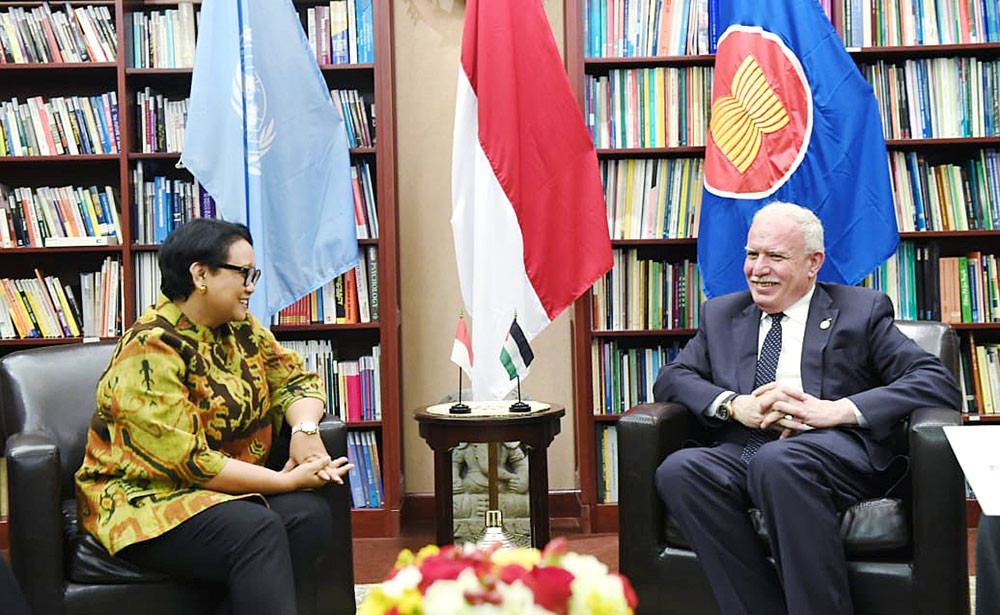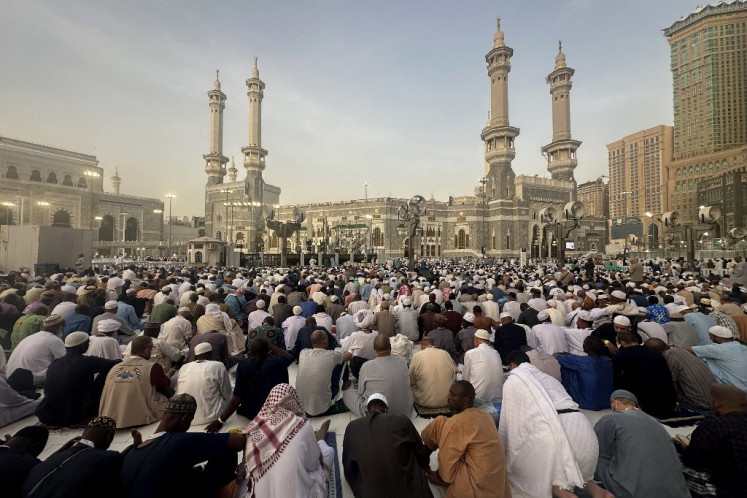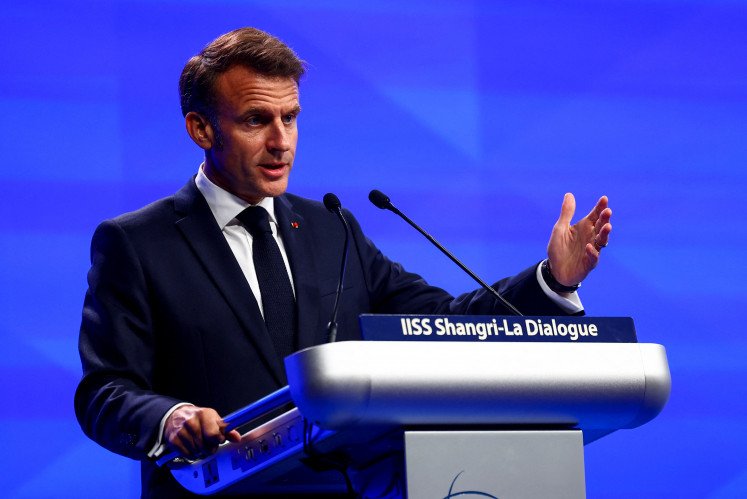Foreign ministry defies call to normalize ties with Israel
NU leader calls for decisive action 'beyond official diplomacy'.
Change text size
Gift Premium Articles
to Anyone

O
ver a year ago, the United States led the signing of the Abraham Accords, which normalized diplomatic ties between Israel and several nations from the Islamic world.
However, formal relations with Indonesia continue to elude the Jewish state, with local officials reiterating the country’s unwavering support for Palestine.
Made possible under the Donald Trump administration, the Abraham Accords was signed in September 2020 between Israel, the United Arab Emirates and Bahrain, followed by Sudan and Morocco a few months later.
Under a new administration in Washington, Israeli officials are still expressing hope that it can continue to expand the list of countries to sign up for the economically incentivized agreement, including Indonesia, whose 270 million-strong population are mostly Muslim and staunch supporters of Palestinian independence.
A few weeks after the visit of US Secretary of State Antony Blinken to Jakarta in early December 2021, it was reported that Blinken had raised the question of Indonesia establishing diplomatic ties with Israel during his meeting with Foreign Minister LP Retno Marsudi.
The ministry was quick to respond by suggesting that the minister had reiterated Indonesia's official stance to Blinken.
Retno emphasized the pledge in her annual foreign policy speech last week, albeit almost in passing, insisting that “Indonesia’s commitment to assisting in the struggle of the Palestinian people will continue to prevail”.
The country's consistent approach to the Middle East conflict between Israel and Palestine is enshrined in the 1945 Constitution, in line with the spirit of solidarity at a time when anticolonial movements flourished in the aftermath of World War II. Palestine is the only remaining participant of the 1955 Asia-Africa Conference, held in Bandung, West Java, that has yet to gain independence.
On Monday, the Foreign Ministry’s new director for Middle Eastern affairs, Bagus Hendraning Kobarsyih, said Indonesia would never tolerate the occupation of Palestine by Israel and that it would continue “to support a two-state solution in accordance with international parameters”.
“We are still focused on how [Palestine] may get its independence. The situation surrounding it might change, but our fundamental position will not,” Bagus said on the margins of a Palestinian Embassy event in Jakarta.
In his own remarks at Monday’s event, Palestinian Ambassador to Indonesia Zuhair Al Shun said he was convinced that the Indonesian government would not be swayed by the US to establish relations with Israel.
“I am sure Indonesia will reject that, and, as I understand it, as long as the Palestinian people are under occupation, Indonesia will not change its position,” he said.
Read also: In Indonesia, social media amplifies local support for Palestine—and also Israel
Shifting loyalties?
Speculation over Indonesia’s potential softening on the Palestinian issue gained traction following President Joko “Jokowi” Widodo’s flirtations with the UAE – the principal beneficiary of the Abraham Accords – over the past year, which has been showering the country with attention and funneling money into critical development projects.
The recent election of the chairman of the country’s largest grassroots Muslim organization, Nahdlatul Ulama, also drew attention back to the issue.
Newly minted NU chairman Yahya Cholil Staquf has expressed the need to take more concrete and decisive action “beyond official diplomacy” that does not take the focus away from humanitarian efforts to solve the Palestine-Israel conflict.
He also did not rule out the possibility of engaging with Israel while underlining NU’s belief in solutions that support the Palestinian people.
“We can talk; of course, not within a formal political frame because we are not in any position to do that. But it should be clear that we can have discussions with all parties; with the Palestinian people, with people from Israel, as well as other stakeholders; not only Israel and Palestine, but also various other global actors, both Western and Middle Eastern countries,” he told reporters on Monday.
Yahya was widely criticized in 2018 when he attended an event in Jerusalem, where he met former Israeli leader Benjamin Netanyahu. He also follows in the footsteps of his mentor, Abdurrachman “Gus Dur” Wahid, a former president and moderate NU leader, who has entertained the idea of establishing formal ties with Israel.
But this hope for Indonesia to normalize relations with Israel had purportedly run out of steam by the time US president Trump lost his reelection bid, said Yon Machmudi, a scholar from the University of Indonesia’s (UI) Center for Middle Eastern and Islamic Studies.
“It isn’t urgent for Indonesian national interests in terms of security and the economy as it is for Arab countries [to normalize ties with Israel],” he told The Jakarta Post on Monday. “Such calls can be ignored as long as no agreement is reached on Palestinian independence.”
Yon said Israel had sought to piggyback on Washington’s warming ties with Jakarta, which sought US reassurances amid China’s assertive behavior in its waters.
“I think it was too early for Blinken to express Israel’s aspiration for normalization, because his focus in Indonesia was to jointly confront China, and so far, it has yet to receive a positive response,” he said.









